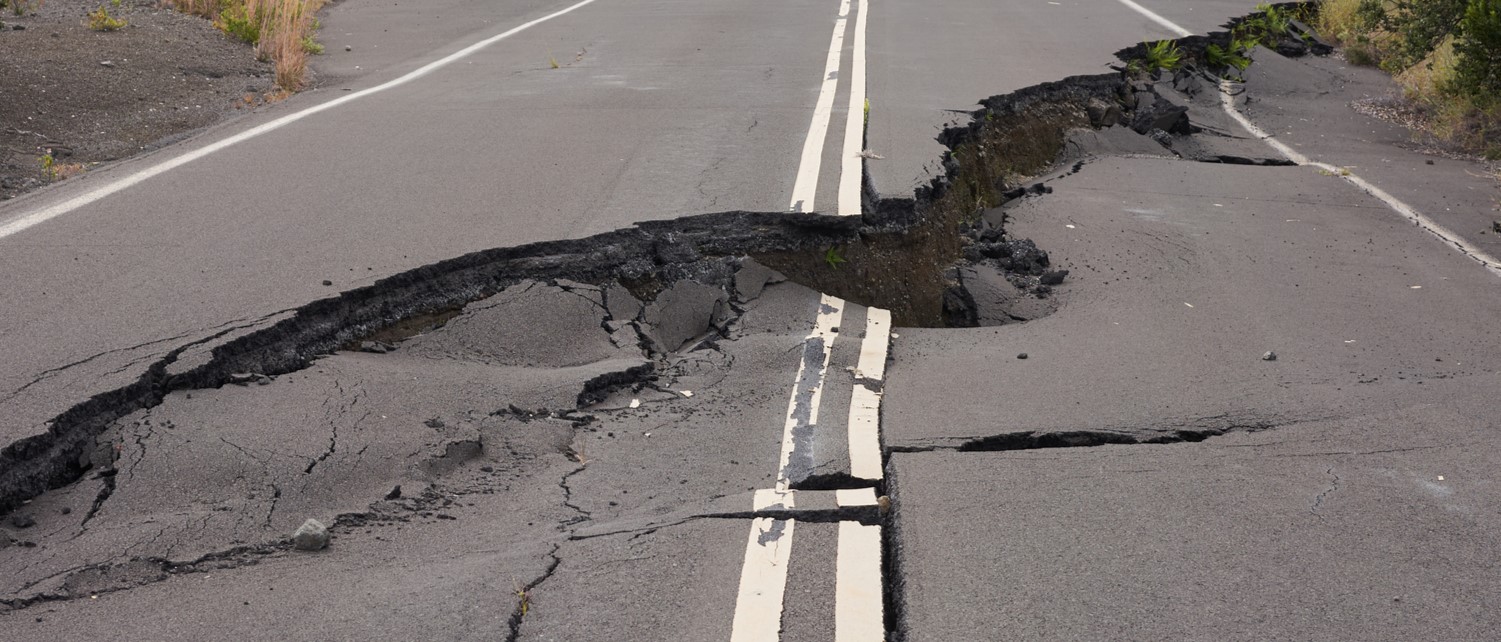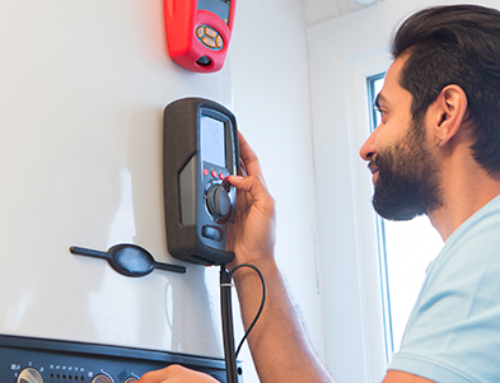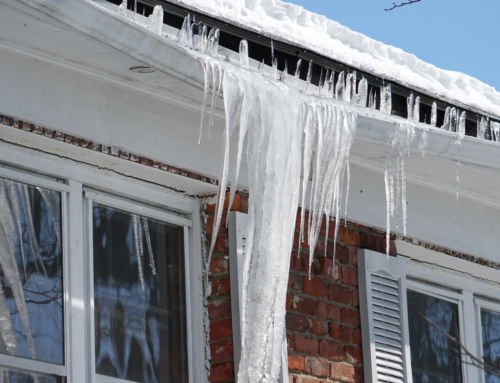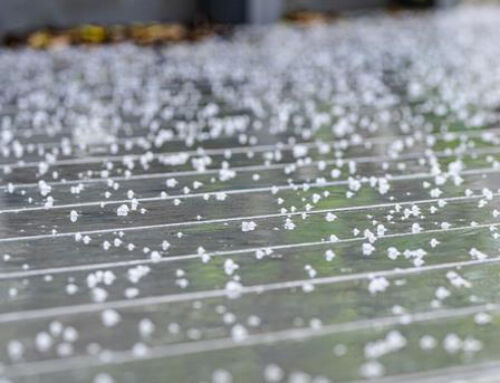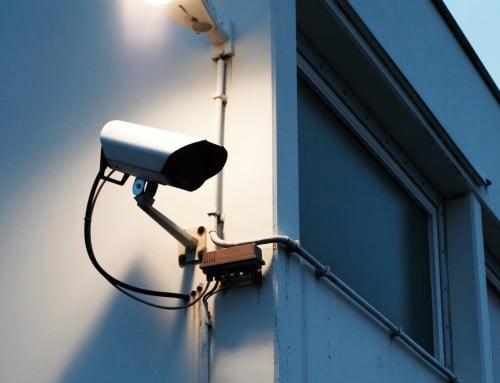Earthquakes are unpredictable natural events that can occur at any time of the year. They violently shake the ground due to tectonic plates moving along a fault line in the earth’s crust. Earthquakes can cause soil liquefaction, landslides, fissures, avalanches, and tsunamis, and can vary in duration, magnitude, and intensity.
In Canada alone, there are approximately 5,000 minor and major earthquakes each year. British Columbia is particularly prone, given its proximity to the Pacific Ocean. However, Ontario and Québec are not immune, frequently experiencing earthquakes in the St. Lawrence and Ottawa River valleys.
During an earthquake, infrastructure like buildings, vehicles, roads, and bridges can suffer structural damage. Essential services such as water, electricity, gas, and communication networks may also be disrupted, and post-earthquake fires can rapidly spread, causing widespread devastation.
As a business owner, it’s important to take the time to prepare your business for an earthquake. Adopting a proactive stance can ensure the safety of your employees and the continuity of your operations. Here are some tips on what you can do before, during, and after an earthquake:
What to expect during an Earthquake
It’s important to know what to expect during an earthquake. Minor earthquakes are usually brief and pose minimal danger. During these events, there may be a temporary power outage, objects may shift within buildings, and you may feel the ground shake.
On the other hand, major earthquakes can last for several minutes and result in intense movements, possibly causing dizziness and disorientation. The ground shakes violently, buildings sway, windows shatter, and structures or objects may fall, often accompanied by a loud banging noise. It’s also likely that power and communication services will be disrupted.
How to prepare before an earthquake
Develop a business continuity plan and disaster plan
An effective response to an earthquake begins long before it strikes. It’s important to develop a well-thought-out business continuity and disaster plan, and train employees on these procedures and protocols. Employees should know where and how to continue working, if possible. Make sure they understand key shutoffs, such as turning off the water, electricity, and gas. You should have clear “on” and “off” labels for each utility.
Assemble an emergency supply kit
In the event of an earthquake, having an emergency kit that’s readily accessible is crucial. Consider including the following items in your emergency kit:
- Emergency contact list
- First-aid kit
- Battery powered flashlight
- Generators, backup batteries and power banks
- Candle and matches
- Water bottles
- Non-perishable food, such as canned foods and energy bars
- Manual can opener
- Portable weather radio
Prepare your business property
When it comes to protecting your property from an earthquake, there are proactive measures you can take to minimize potential damage. Regular inspections can help identify and repair any loose or damaged components of the building. You should consider consulting a structural or seismic engineer about seismic retrofits for your building. Here are some additional steps you can take to help secure your property and equipment:
- Remove trees and branches that can fall on your roof or nearby power lines.
- Consider installing seismic gas shut-offs valve to prevent natural gas from flowing into the property.
- Use seismic strapping to secure building fixtures, like gas-fired equipment and water heaters, to masonry or wall studs.
- Secure loose objects that might move around during an earthquake, such as furniture, appliances, and electronics, using anchors and fasteners.
- Install safety latches on drawers and cupboards to stop contents from falling out.
- Store heavy items on lower shelves or on the floor.
What to do during an earthquake
If you are indoors when an earthquake strikes, stay put and follow these safety guidelines:
- Drop under heavy and solid furniture, such as a desk or table. Cover your head and torso from being hit by moving items. Hold on to the structure you are under so that you stay covered until the shaking ends.
- If you are unable to go underneath a strong structure, or you are in a hallway, crouch or flatten yourself against an interior wall, protecting your head and neck.
- Avoid facing or situating yourself near exterior walls, windows, doorways, shelves with heavy objects, light fixtures, and items hung on walls.
- Do not enter and use an elevator during an earthquake! If you are already in an elevator when the earthquake starts, press the button for the nearest floor and exit as soon as you can.
For those outside during an earthquake, move to an open area away from buildings that may collapse. Remember that exterior walls are extremely dangerous during an earthquake. You should stay at least 10 metres away from downed power lines and if you happen to be along a coastline, move inland or towards higher ground.
How to recover after an earthquake
After the earthquake has passed, assess your surroundings for safety and check on those around you. Be aware that there may be aftershocks, which are smaller earthquakes after a large earthquake. You should move away from unstable structures or objects and assist others if it’s safe to do so. If you are unable to reach them safely or need help yourself, call emergency services or place a “HELP” sign against a window if you can’t access a phone.
Look out for mobile alerts and listen on a weather radio for instructions from authorities. If you smell leaking gas, or see hazardous material spills or flooding, evacuate the building immediately. To help prevent a fire, keep your utilities turned off, and unplug electronics and lights. If possible, wear protective clothing and shoes to avoid injuries from broken glass or sharp debris. Lastly, document and photograph any structural damages to your building and vehicles; this may help in subsequent investigations or insurance claims.
Protect yourself and your business
Earthquakes are unpredictable natural events that can cause severe property damage, injury, and disruption in business operations. Implementing the right measures before, during and after an earthquake can help reduce the severity of these effects. However, things can always still go wrong. That’s why having the right protection in place can make all the difference. To learn more about how the right coverage can help, visit our business insurance page today.
This blog is provided for information only and is not a substitute for professional advice. We make no representations or warranties regarding the accuracy or completeness of the information and will not be responsible for any loss arising out of reliance on the information.
